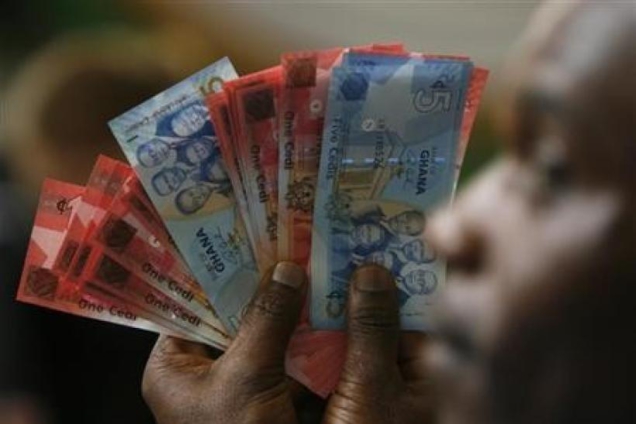Importing food products into Ghana comes with a hefty price tag, as importers face a multitude of taxes and levies that contribute to the overall cost of these essential goods.
The list of charges is extensive, and when coupled with quarterly increases in utilities and substantial fees and charges by Municipal and District Chief Executives (MMDCEs), it's no wonder that the food and beverages sector is feeling the financial strain.
Here is a comprehensive breakdown of the about 20 taxes and levies that can be applied to an average imported product, substantially inflating the cost to consumers:
- Import Duty - 20%
- Import VAT - 15%
- Ecowas Levy - 0.50%
- Network Charge - 0.40%
- Network Charge VAT - 15%
- Network Charge Covid-19 - 1%
- Network Charge NHIL - 2.5%
- Special Import Levy - 2%
- Ghana Shippers Authority - 0.9%
- Import NHIL - 2.5%
- Withholding Tax on Import - 1%
- GHS Disinfection Fee - Amount not specified
- Ghana Export Import Bank Levy - 0.75%
- Ghana Education Trust (GET) Fund Import - 2.5%
- Network Charge GET Fund Levy - 2.5%
- Inspection Fee - 1%
- African Union Import Levy - 0.2%
- Covid-19 Health Recovery - 1%
- FDA (Food and Drugs Authority) Fee - 0.5% and 0.8% of the invoice value
- Ghana Standards Authority Fee
(Cumulative fee of $65.95 + FDA + GSA + Disinfection fee $30 )
Additionally, importers grapple with quarterly increases in utility tariffs, a growing burden as they continuously hike up costs.
Fees and charges by MMDCEs have also reached alarming levels, often soaring over 60%, placing further financial pressure on importers.
In a stark revelation, it has been disclosed that the food and beverages sector alone pays over 70% of its profit to the government in the form of taxes and levies.
This staggering financial burden is stifling business growth and impacting employment levels and government revenue.
The financial landscape for food product importers remains turbulent, and decisive action is required to avert further financial strain and protect the industry's viability.
As the sector confronts these formidable challenges, the government's response will be critical in shaping the future of Ghana's food and beverage importers.
Government itself admit there are a lot of improvements needed in the area of taxes and revenues as Ghana's Medium-Term Revenue Strategy for 2024-2027, states plan to "review or consolidate tariff lines that contribute to the high cost of doing business at the ports."
This move aims to streamline and simplify the tariff lines associated with importing food and beverages, potentially reducing the financial burden on importers while facilitating smoother trade processes at the ports.
Additionally, indirect tax strategies are proposed as part of this medium-term revenue plan. One key strategy is to "Align excise duty rates such that similar products attract the same rates."
This measure seeks fairness and consistency in the excise duty structure for food and beverages and comparable products.
Such alignment can create a more equitable playing field for businesses and help ensure that the taxation of these essential goods is reasonable and uniform.
The ball is now in the government's court to consider the pleas of the importers and work towards a more balanced taxation system that promotes both economic growth and affordability for essential food products.
Latest Stories
-
Congo lawyers say Apple’s supply chain statement must be verified
2 minutes -
Stampede in southwestern Nigerian city causes multiple deaths
26 minutes -
Tens of thousands without water in Mayotte as curfew brought in
39 minutes -
ORAL: We won’t witch-hunt, we’ll focus on transparency, not revenge – Ablakwa
1 hour -
Attempted robbery: Accused claims he carried cutlass for protection
1 hour -
Excavator operator jailed for stealing
2 hours -
African fans age-shame me for putting on some outfits – Tiwa Savage
2 hours -
Tiwa Savage criticised by female fans for stance on cheating in relationships
2 hours -
Bank of England expected to hold interest rates
2 hours -
Congo river boat sinks killing at least 22
2 hours -
Nigeria approves Shell’s $2.4 billion asset sale to Renaissance
3 hours -
Embattled Liberian speaker questioned by police over parliament fire
4 hours -
‘I won’t be a judge in my own court; ORAL is about protecting public purse’ – Ablakwa
4 hours -
Bawumia joins thousands in Kumasi for burial prayers for Ashanti Regional Imam
4 hours -
Blue Gold Bogoso Prestea Limited challenges government actions in court
4 hours

